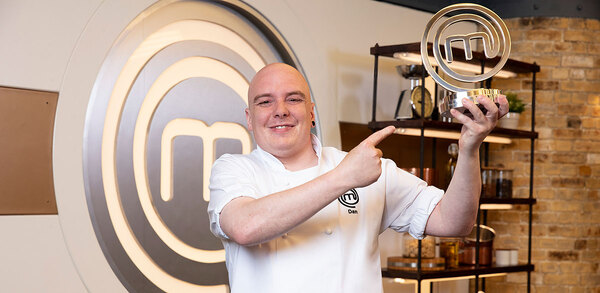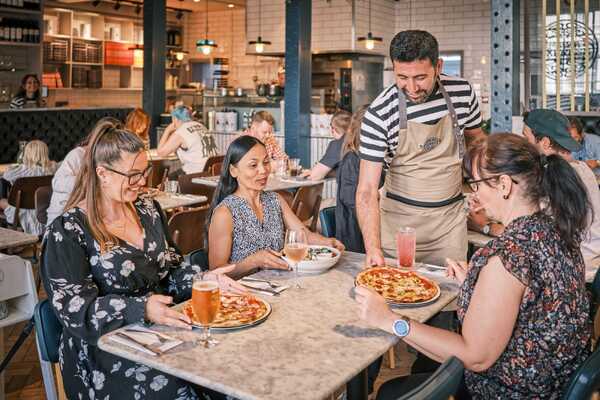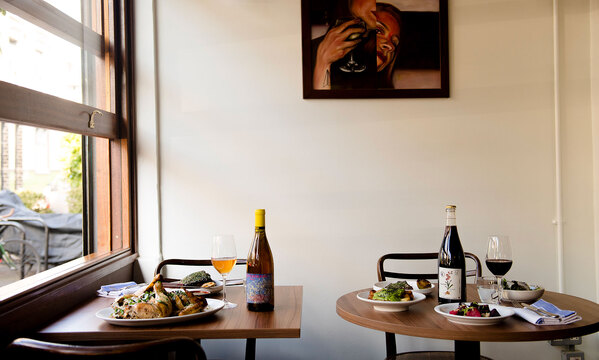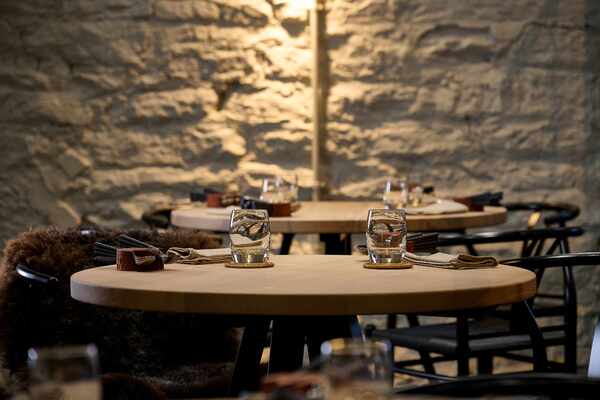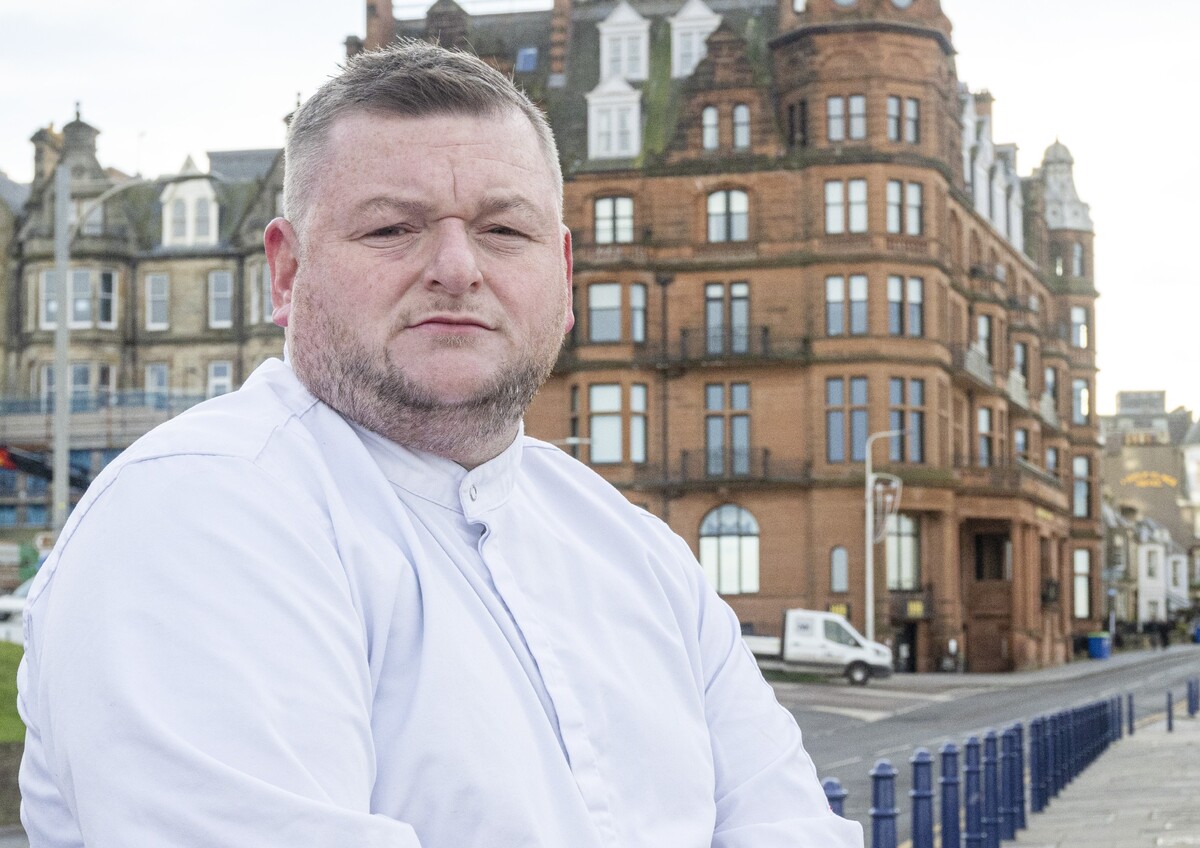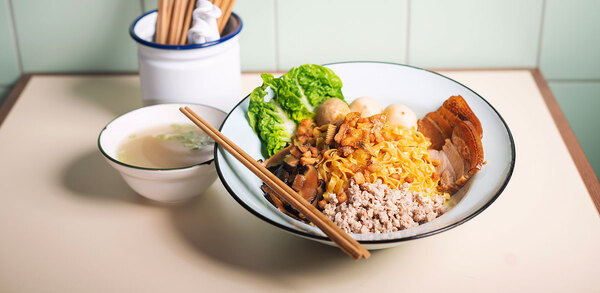Star of the stage: Roux Scholar 2017 Luke Selby shares what he learned during his stage at Nihonryori RyuGin, Tokyo
Michel Roux (MR): Out of all the three-Michelin-starred restaurants in the world, why did you choose Nihonryori RyuGin?
Luke Selby (LS): I wanted to challenge myself, and being out there in Japan, not being able to speak the language and working with a different cuisine â" I donât think thereâs anything further from my comfort zone. Choosing to train in Tokyo was a huge opportunity and I wanted to make the most of it. It was somewhere that Iâd always wanted to go.
MR: It is very difficult to get a stage in any three-star restaurant, but itâs even more difficult in Japan because its a closed shop. Itâs a massive culture shock, itâs totally different and that puts even more pressure on you.
LS: They had a list of rules that I had to adhere to when I started and one of them was that I had to be clean shaven. Halfway through my first day, one of the chefs (the only one who spoke English) pointed at my arm, and said, âTomorrow, please shave your arms, or you cannot work hereâ, so I had to shave my arms every day. In Japan itâs normal for the sushi chefs to shave their head, faces and arms. Even if they accidentally drop something on the floor, they have tweezers in their pocket to pick it up and throw it away â" they wouldnât use their hands. Itâs just complete discipline.
MR: They also have complete respect for ingredients and for the animal all the way through.
LS: The quality of the produce was just unbelievable. All the fish were alive in tanks and they killed them every morning. I was blown away by the respect they have for the produce. The technique they use to kill the fish is called ikejime [considered the most humane way to kill fish, where a spike is inserted into the back of the head, causing immediate brain death]. The fish had to be calm before it was killed. They told me that when you are calm, the fish is calm; if youâre stressed, the fish will be stressed. I was lucky enough to be able to kill the eels for unagi in the morning.
MR: How did you see the menu change while you were there?
LS: Its hyper-seasonal and they work closely with suppliers. We had vegetables that came from the mountains and other amazing produce that Iâd never seen before. Every week or two, something would come into season, it would go on the menu, and then it would come off again a couple of weeks later.
MR: So now youâre back, how much has your stage influenced your menu planning?
LS: The way they think about things is so different. Take seaweed, for example. Before I went to Japan, I didnât really understand it, but once I got there, I realised that there are so many different varieties. Itâs unbelievable the kind of diversity they have in the ingredients.
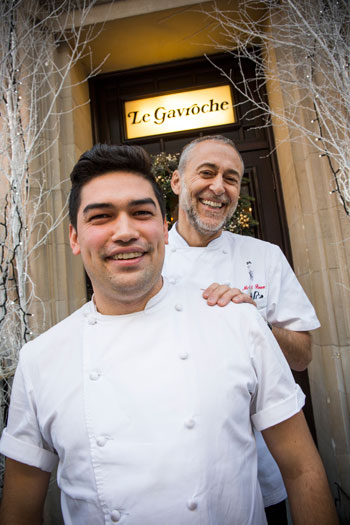
LS: Firstly, it was a big culture shock. Theyâre just so focused on everything â" work, life, whatever they want to do, they just throw themselves into it. The chefs were working six days a week with one day off. The discipline is so different. Everyone at Nihonryori RyuGin had been in the kitchen for years. They have a real dedication to their craft that is really impressive.
MR: What was the one thing you missed? Beans on toast? [laughs]
LS: It was quite difficult because there was a language barrier, so I missed having a normal conversation with someone. It was a little lonely at some points but, saying that, I did enjoy having some time to myself.
MR: Did you pick up the language?
LS: Only basic kitchen terms. I could also ask for a drink and for the bill. Their language is so different and not many people speak English. In the kitchen each chef had a little microphone and the dishes were tracked on a board. It was like dominoes, but instead of dots the dishes were written on in Kanji, and there was an arrow showing one dish going to the next. I had no idea what was going on for the first few months!
MR: And you had help from another Roux Scholar out there?
LS: Trevor [Blyth who won the Roux Scholarship in 1996] is based in Tokyo. Heâs great. I didnât know what was going on, even trying to navigate public transport was a nightmare. He helped me with some basic cultural differences. It was great to have a friend out there.
MR: Being a Roux Scholar is not just about being a great chef, itâs also about being part of a very elite group of chefs. How does it feel to be part of this network?
LS: Itâs amazing. It feels like youâre part of a family and that you have been accepted into a exclusive group. Although we see each other as Roux Scholars, we are also friends and interested in each other because weâre all different ages, with different backgrounds and doing different things. Iâm quite young and these guys have loads of advice to give. Theyâre always there at the other end of the phone.
MR: What else did you do while you were out there? I know you were working very hard for six days a week.
LS: Iâd get the train and just travel around outside of Tokyo. Tokyo is amazing â"Â within a two-hour radius you can be at the beach or the opposite way in the jungle. I wanted to explore as much as I could. I visited some wasabi growers and went foraging in the woods.
MR: Did you eat in some wonderful places?
LS: I did. I ate out as much as I could and tried a few phenomenal three-starred restaurants.
MR: What about street food?
LS: I ate so much yakiniku [grilled meat], yakitori [skewered chicken] and different kinds of noodles and ramen. I would go out at 3am and everything would still be open. Itâs such a healthy cuisine as well, very light and clean.
MR: Did you lose a few pounds?
LS: I lost a stone! Just through eating the Japanese diet â" I wasnât forcefully dieting, it was just eating clean; a lot of rice and raw fish.
MR: All the Roux Scholars have something in mind that they want to take out of the stage. Did it fulfil all your dreams?
LS: Definitely. I learned so much. I have been classically French trained through my experiences at Belmond Le Manoir aux QuatâSaisons and Restaurant Gordon Ramsay, but going to Japan just turned everything on its head. I got what I wanted out of it and I learned a lot of new knife skills.
MR: Can you incorporate some of that into your cuisine?
LS: Definitely the techniques â" thereâs so much I can put into what I do at the moment and in the future. Iâd like to start incorporating some of the Japanese techniques and also the mentality I learned, but using British produce.
MR: What is your favourite part of the Roux Scholarship competition? Mine is the final where we get to taste the great food.
LS: Mine was cooking. I really enjoyed cooking the final dish â" I had a lot of fun.
MR: I always say you can tell if someone is enjoying it because you can taste it. Thereâs a definite difference between the chef thatâs in the zone and really enjoying themselves to one thatâs stressed out.
LS: I was so nervous in the final, but as soon as I started cooking, those nerves faded away.
MR: The competition is a success because itâs based on French dishes and classic technique. Weâre not looking to change it and I donât think itâd be right to. Weâre staying true to our roots. In the future we would like to invite our former scholars onto the panel â" maybe in a few years youâll be judging. What would you say to chefs thinking about entering the Roux Scholarship?
LS: Itâs one of the best things I have ever done. Itâs opened so many doors to amazing experiences I would have never ever been able to do without the support of yourself and the Roux family. I wouldnât have been able to have gone to Japan.
MR: Whatâs next for you?
LS: Iâm involved in opening a new restaurant with Ollie Dabbous and we are developing dishes in a test kitchen. Itâs really exciting. Iâll be his head chef of the fine-dining part of the restaurant. Thatâs all I can say!
About Luke Selby
Luke Selby started his career at Belmond Le Manoir aux QuatâSaisons, Oxfordshire, at the age of 18. He worked under Raymond Blanc for six years, working his way up from commis to sous chef.
In 2014, he left Le Manoir to become chef de partie at Gordon Ramsayâs Royal Hospital Road in London under Clare Smyth. He then went on to join Ollie Dabbous at his self-titled Michelin-starred restaurant in Fitzrovia.
Selby won the Roux Scholarship just before Dabbous closed in July. On 22 June he undertook a stage at the three-Michelin-starred Restaurant Nihonryori Ryugin in Japan, part of his prize for winning the competition.




